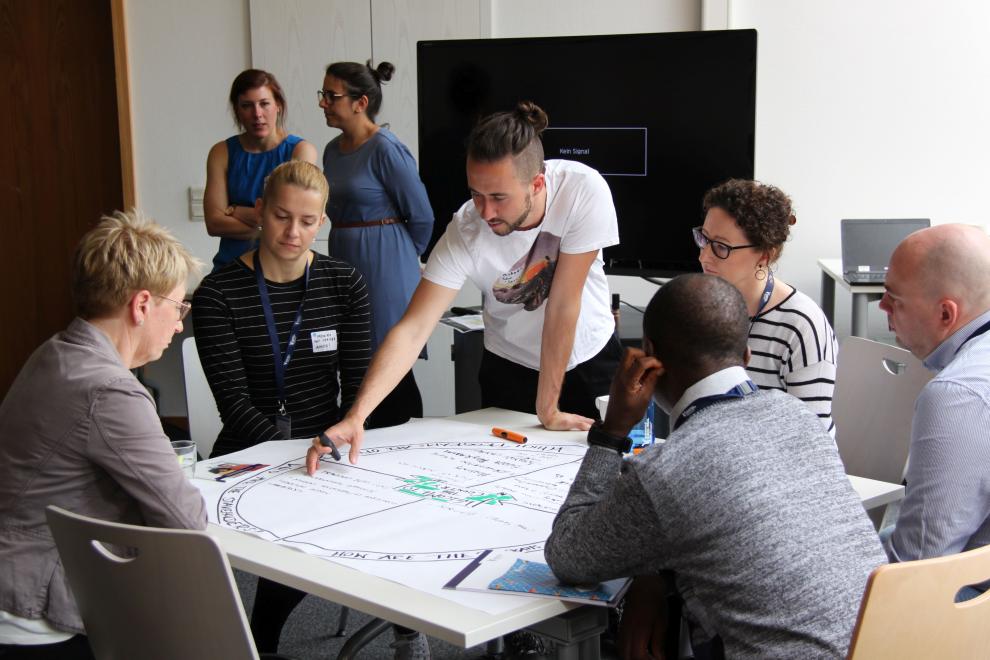International partners visit Rhine-Waal University of Applied Sciences
Rhine-Waal University recently hosted representatives from its partner universities around the world for its first-ever International Week. Together, the group explored the topic of internationalisation at institutions of higher education in a series of intensive workshops, talks and forums, exchanging insights, experiences and analyses from a wide variety of viewpoints.
Collaborative events like International Weeks are organised by universities world-wide as a way of strengthening their partnerships, improving the quality of their offers and services and acquiring new best practice examples. For the first time in its ten-year history, Rhine-Waal University of Applied Sciences recently hosted its own International Week. The leitmotif was the question “What makes an international university?” and some 40 representatives from partner institutions in 17 countries, both in Europe and from around the world, came together to formulate an answer together.
Visiting representatives were given a comprehensive, insider look at facilities, staff and services of Rhine-Waal University of Applied Sciences, as well as insight into its institutional strategy for internationalisation and practical examples of how internationalisation is applied at all organisational levels. But Rhine-Waal University’s International Week was more than a forum for discussing recent trends and topics in internationalisation – it was also an opportunity to connect many different people across institutional, national and cultural boundaries and facilitate a mutually beneficial exchange of ideas and experiences. In numerous workshops and talks participants examined best practice examples of internationalisation and investigated both current and future chances and challenges of international partnerships between universities, what the practical consequences of these partnerships might be, and key criteria for success. International partners also met with their counterparts and representatives from Rhine-Waal University’s faculties, service teams, administration and student body to discuss these topics in greater detail.
Wednesday of International Week was dedicated solely to students and staff at Rhine-Waal University of Applied Sciences. Experts, including Beate Körner from the German Academic Exchange Service (DAAD), travelled to Kleve to speak with students and staff about international mobility and research opportunities through the EU’s Erasmus Programme, Erasmus Strategic Partnerships, and Blended Mobility, a hybrid form of exchange for students with a virtual component. At the same time, the partner university representatives presented themselves and their institutions to students and staff at information stands with flyers and freebies. Many undergraduates took advantage of the opportunity to learn more about internship or study abroad opportunities for their mandatory 6th semester abroad.
International Week left a very good impression on the visiting representatives as well. Marie McArdl, from the National University of Galway, Ireland, said: “The programme was an exceptionally good mix of talks, workshops and cultural activities. I learned quite a bit in my week at Rhine-Waal University of Applied Sciences.” Rafal Gacynski, of the President Stanisław Wojciechowski State University of Applied Sciences in Kalisz, Poland, had words of praise for Rhine-Waal University’s internationality: “Here you can study in a very international environment. The students are given many opportunities to study abroad and to network. I was also able to establish useful new international contacts this week as well.”
Dr Joost Kleuters, Head of the International Center at Rhine-Waal University of Applied Sciences, was pleased with how well International Week was received. “It’s important that our partners see what we can offer their students wanting to go abroad, but these partnerships are also important opportunities for our own students to go abroad as well.”

